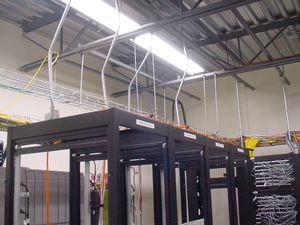Remote IT Support For Small Business
منشور من طرف KDB TechnicalServices
الجسم
In recent times, the need for remote IT support for small business has become more apparent than ever before. In a modern world, businesses can’t afford to lose any more time or revenue over technology problems, especially when their budgets are already stretched thin. This is where IT support comes in. Outsourcing IT support to a remote team can be a cost-effective and efficient solution for small businesses.

Firstly, remote IT support provides small businesses with 24/7 availability to solve any IT issues that arise. This is a significant advantage over having an in-house IT technician who may work at set hours, limiting the availability of help. One of the main benefits of remote IT support is its proactive approach. Instead of waiting for problems to happen and then finding a solution, remote IT support prevents problems from happening in the first place by constantly monitoring and maintaining systems.
Secondly, remote IT support allows small businesses to cut down on the costs associated with hiring in-house IT support. By outsourcing, businesses only pay for the services they need and when they need it. The business does not have to worry about additional expenses such as salaries, taxes, insurance, or training. This gives small businesses the ability to cut costs and allocate resources where they are most needed.
Thirdly, remote IT support can provide small businesses with access to a more extensive range of IT expertise. It is much more feasible for remote IT support providers to keep up with the latest technology trends and updates compared to an in-house IT support team. Having a remote IT team means that businesses have access to a broader range of skills and knowledge that can help them through the constantly evolving technological landscape.
Fourthly, remote IT support offers businesses a secure and stable solution to potential security threats and data breaches. Cybercrime is an ever-increasing threat, and small businesses are not immune. Remote IT support can help businesses identify and prevent vulnerabilities in their systems, regularly backup data to a secure location, and ensure that a business’ data is as secure as possible.
In conclusion, remote IT support provides several advantages for small businesses. The costs saved are only one aspect of the benefits that businesses can attain by outsourcing their IT support. By working with an experienced remote IT support team, small businesses can take advantage of the latest technology knowledge and expertise, have 24/7 support, and keep their systems secure. With these advantages in mind, it’s clear that remote IT support is a viable and valuable option for small businesses looking to gain a competitive edge in today’s technological landscape.











تعليقات